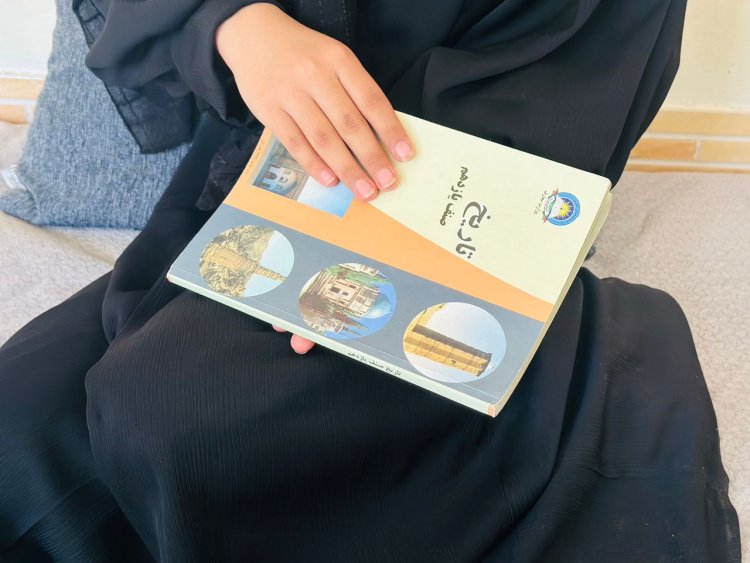From Fall to Today: “Four Summers Without a Spring”

In Afghanistan, school begins with spring. Trees sprout fresh leaves, courtyards smell of untouched soil, and the streets are filled with children rushing toward open gates. Spring was the season of new notebooks and white shoes. Girls recited freshly learned poems along the way, while boys tucked their plastic balls under their arms so they wouldn’t be late.
For four years, this scene has disappeared from the city. School gates are locked; behind them, benches no longer echo the sound of notebooks hitting their surfaces. Chalkboards, once covered with last lessons, are now coated with dust. Windows that used to shine with morning light are dull and lifeless. In the schoolyard, weeds have replaced the footprints of children, and a rusty swing sways silently with the wind.
Books are no longer in small hands. They sit at home, tucked in drawers or beneath old scarves. Dust has swallowed the letters on their covers, and the pages carry the smell of dampness and silence. A girl who once could recite the poem “Spring has Come” by heart now only remembers that such a poem existed.
Summers are harsher. The sun beats directly on mud walls, emptying the streets more than ever. Girls peer out from behind wooden windows, through gaps in curtains. From there, in silence, they watch boys their age walk by, backpacks full of books. Their gaze is fixed on the ground—not out of shame or obvious envy—but weighed down by an emotion for which no words exist.
Four years of deprivation quietly and slowly change memory. Math disappears from minds, handwriting falters, poems are forgotten, and teachers’ names fade. This forgetting comes gradually, like a branch drying out because no one waters it.
Yet the city still remembers days when mornings were full of the girls’ lines; the rustle of notebooks, laughter between classes, and footsteps moving toward the future. But the city’s memory, like faded photographs, becomes dimmer with each passing day.
The keys to these gates are not lost. They remain in the pockets of those who want spring only in their own gardens. And if these years continue, perhaps the only remaining trace will be a dust-covered notebook found in a drawer. When someone opens it, the scent of old paper will rise, and on its first page, in faded handwriting, this sentence will be visible:
“This year’s spring will be our year of emptiness.”
— Fatemeh Erfan
